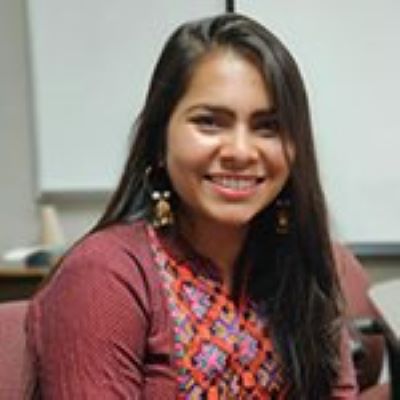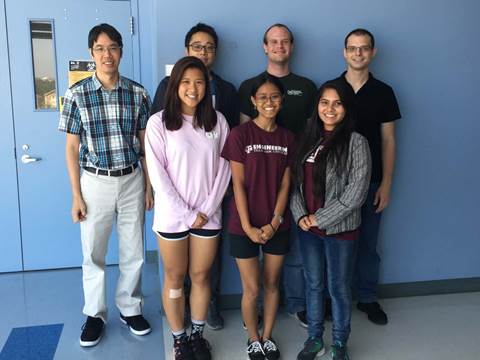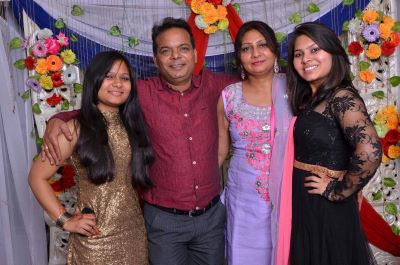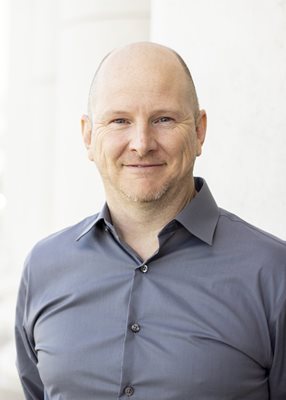News
.jpg)
COLLEGE STATION, April 28, 2020 – Nearly a century ago, Alexander Fleming observed that a type of mold created a bacteria free zone in a petri dish. His observation, which would lead to the development of antibiotics, represents one of the most significant scientific discoveries of the 2oth century. Until then, fighting off a bacterial infection like pneumonia, whooping cough, or strep throat depended on the strength of one’s immune system, which spelled trouble for children, the elderly, and those affected by other conditions. But antibiotics would soon transform healthcare, helping people fight off these deadly infections and saving countless lives.
Even at the time, however, Fleming understood that the fight against bacterial infections was not over. In time, bacterial microbes could evolve, developing resistance to these revolutionary drugs.
Today, antibiotic resistance is one of the biggest challenges biomedical researchers face. Antibiotics aren’t working as effectively as they once did. As a result, doctors often have to prescribe multiple antibiotics in higher doses than ever before, which both enhances bacteria’s capacity for developing resistance and intensifies side effects experienced by patients. It is imperative that researchers discover and develop new ways to help antibiotics fight infections. The is the focus of Texas A&M doctoral student Akshi Singla.
Singla, who will graduate with a Ph.D. in Chemical Engineering this May, has spent the last five years researching the vexing problem of antibiotic resistance.
A Research Breakthrough
Specifically, in her research, Singla has discovered the mechanism bacteria use to first latch on to a cell before an infection sets in. Armed with that knowledge, she has developed a new drug delivery system to attack the bacteria where it creates the infection, effectively turning the bacteria’s latching mechanism against it. “In administering the antibiotic at the site of infection,” she says, “we turn one of the bacteria’s strengths into a vulnerability, in a sense giving it a taste of its own medicine. At the same time, targeted delivery makes the antibiotic more effective against multidrug-resistant microbes and minimizes the harmful side effects to the rest of the body.”
Singla’s research is poised to make a positive difference in world health, explains her doctoral supervisor and Texas A&M Chemical Engineering Professor Dr. Hung-Jen Wu. “Akshi has made a major breakthrough in combating multi-drug resistant infections. Her research is not just promising; it’s absolutely going to make an impact.”
Dr. Wu has been so impressed with her work that he nominated Singla for a 2020 Texas A&M Distinguished Dissertation Award. Four Distinguished Dissertation Awards are given annually to current or recently-graduated doctoral students whose dissertations represent extraordinarily high-level scholarship.
Not only did Singla win one of the four awards this year, she is also the recipient of the 2020 Kunze Award for most outstanding doctoral dissertation. As the Kunze Award winner, Singla is one of two students whose dissertations Texas A&M will submit for consideration in a national Distinguished Dissertation Awards competition sponsored by The Council of Graduate Schools and ProQuest.
.jpg)
Dr. Wu (left) with research team, including Singla (front right)
Development as a Researcher
Singla recognized early in her life that she had an aptitude for science and math. But, as a high school student, she gravitated more toward physics than biology. “Bio wasn’t one of my strongest subjects, so I avoided it for a while,” she admits with a laugh.
As an undergraduate, she attended the prestigious India Institute of Technology-Delhi, where she majored in Chemical Engineering. It would be her senior year, however, before she started to develop the interest in biomedical sciences that would shape her future research. “I became fascinated by the work of researchers who were conducting chemical engineering research projects from a bio perspective,” she explains. “I also recognized an opportunity to make a real difference in the world.”
Singla grew up in a small town in northern India called Patiala, which is in the state of Punjab. “I come from the developing world,” she says. “Seeing the kinds of health problems that are so prevalent there—from high rates of infectious diseases to a lack of diagnostic testing capabilities—made me want to devote my life to biomedical research.”
Having envisioned how she could merge chemical engineering with biomedical science, though, didn’t mean she had acquired the knowledge to suddenly begin conducting interdisciplinary research projects. To learn more about biosciences, she asked one of her professors if she could stay on after graduation as a research assistant. It was an unorthodox arrangement, but it ended up being a transformative experience. “I learned that I wasn’t as bad at bio as I thought, and was able to better prepare myself for graduate school” she says.
From India to Texas A&M
When considering graduate programs, Singla wanted to find a research supervisor who was conducting diagnostic research from a chemical engineering and biomedical science perspective. Having never left India, she was also keen on finding a graduate program abroad to expand her worldview and liked the way Ph.D. programs were structured in the United States. She applied and got into a number of Ph.D. programs, including Texas A&M and the University of Texas at Austin.
She decided on Texas A&M so she could work with Dr. Wu. “He hit all the criteria I was looking for in a supervisor. He was doing the kind of interdisciplinary diagnostic research I was most interested in doing,” Singla says. “I knew we would be a good match, and we have been.”
Singla has worked under the supervision of Wu since she arrived in College Station in 2015. She describes Wu as an outstanding researcher and great mentor. “He has given me lots of opportunity, not just to support his research, but to initiate projects. He’s also encourages collaborative work with other research groups, which has really helped me, since my research is multi-faceted.
Clearly, the admiration between Wu and Singla is reciprocal. Wu says of her, “She has been an outstanding student and colleague. Since she joined my research group, she helped me to establish and manage my laboratory and initiated various research projects from scratch. Most of her research work required a strong collaboration with a multidisciplinary team. Akshi always took the lead of the projects and has created successful collaborations with Texas A&M Health Science Center, Johns Hopkins University, Nanyang Technological University Singapore and Osaka University Japan. I am very proud of her.”
.jpg)
Singla with her family in India
What the Future Holds
Like 10,000 other Aggies, Singla is graduating during a pandemic that has disrupted life for everyone. For graduate students like Singla, who are looking for faculty positions, hiring freezes at the vast majority of academic institutions presents particular challenges. For now, she has a postdoc research offer from a European university and an offer to stay on for a postdoc at Texas A&M. She is weighing her options, carefully following the evolving situation the pandemic presents.
She equates graduating during a pandemic-prompted hiring freeze to the frustrating early stages of a research project. “Sometimes, when you start working on something new, things might not go as planned and you learn that you may need to change the question. But as you work through the frustration, that’s where you find the best opportunity for discovery.” She says that if she had one piece of advice for other graduate students, it would be to “be patient and persevere through unexpected setbacks.”
Given the present difficulty for international students to acquire visas, Singla may stay on at A&M for now. “I enjoy the work I’m doing,” she says. She also notes that she enjoys living in Aggieland. “People in Texas have been very warm and welcoming to me,” she says. “When I first moved here, I didn’t even know where to buy furniture for my apartment. I posted a Facebook message asking for guidance and countless people responded, not only with tips but also with offers to help. People have been very gracious and Texas A&M is a great place to live and do research,” she explains. “I love the open spaces.”
She is also excited to continue her work, as her drug delivery system could be used to treat viruses, including COVID-19. “As soon as a treatment is created, we can start testing the efficacy of targeted delivery of antivirals.”
Given the caliber research she is doing and the collegial collaborator she has proven to be, Texas A&M will be glad to have her for a little longer.
Media contact:
- Rob Dixon, Texas A&M University Office of Graduate and Professional Studies, 979.845.3631, rdixon@tamu.edu.
